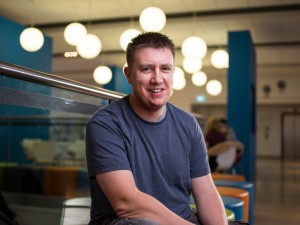With its numerous and diverse cultures, Winston Churchill wrote “Uganda is truly the Pearl of Africa” and went on to say “The Kingdom of Uganda is a fairy tale. The scenery is different, the climate is different and most of all, the people are different from anything elsewhere to be seen in the whole range of Africa….what message I bring back…concentrate on Uganda”. Over one hundred years later this is still true, and Uganda, relatively untouched by tourism, retains a taste of Authentic Africa.
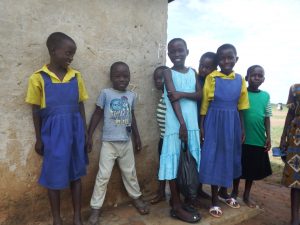
The University of Salford has been working with charity Teams4U for over eight years. Recently, the University’s partnership with Teams4U has been developed to allow students to gain hands-on experience of delivering a public health intervention programme in rural Uganda, learning how to break down cultural barriers and to communicate with the people they serve in order to make the programme a success. Students on our BSc Public Health and Health Promotion course have the opportunity to take a subsidised ten day trip to Uganda (the student pays £200 towards the cost).
The Teams4U Uganda programme is the brainchild of honorary Salford graduate Dr Dave Cooke, who wondered if physical activity could help primary school children to achieve better results at school. Since it began, the programme has evolved and changed to tackle some of the underlying issues that lock communities in a cycle of poverty.
Small changes make a big difference
The experience of handing a football to a child that has never touched a ball is something that is difficult to describe. Before the programme began, children in rural primary schools in the Kumi district of Uganda didn’t have PE lessons; with class sizes at over 100 children per teacher, finding an activity that they could all take part in was difficult. To make matters worse, the budget for most schools is just £1.50 per child for the whole year, meaning they can’t afford basic sports equipment like footballs. Often the schools aren’t funded at all – the money just ‘disappears’.
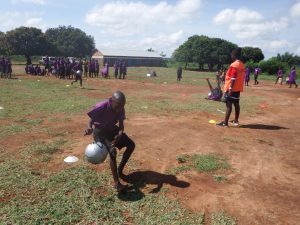
The concept of the programme is simple, but the impact on the children is profound – headteachers have even said they felt inspired to change the way they teach as a result. However, this is where students can get involved in vital research, as many questions still need answering: does the experience of the teachers of the programme change their attitudes to physical activity? Does the donation of balls for football, netball and other activities have an impact on physical activity and sports in the schools?
Breaking the cycle of poverty
The programme also revealed other barriers to education that children in the community face. While both girls and boys are often kept off school to help out at home or work in the fields, girls in particular are not always encouraged to attend school. To add to this, we found that a big problem keeping girls from school was the lack of feminine hygiene products and limited access to water, meaning that they were missing up to a quarter of their schooling.
Keen to break the cycle of poverty where children drop out of school, girls have babies very young and have large families that they can’t support, the team set up two separate programmes to tackle these issues. The first, ‘Develop with Dignity’, provides washable pads for girls to use, meaning they now feel comfortable going to school on their period. Secondly, we organised educational sessions with parents, children and community leaders to discuss the importance of staying in school.
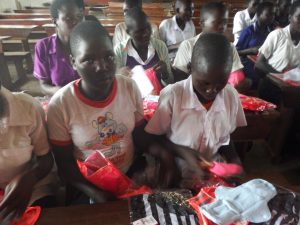
Again, research is needed to understand exactly how these interventions work: does the intervention increase school attendance, for girls in particular? Are parents and the community more aware of the importance of education?
Join a trip to Uganda
You can join in and help run the sports and Develop with Dignity programmes. If you come as part of the BSc Public Health and Health Promotion, you can also help us do research to evaluate the programme.
Our volunteers often find that while they go to Uganda with the intention of serving, they end up gaining more than they give: the experience of sharing time with children who get so much joy from the simple gift of your time and attention.
Find out more
Watch this video about the University of Salford’s public health and health promotion opportunities in Uganda
To find out more about the other public health and health promotion work that the University of Salford and Teams4U have carried out in Uganda, go to our related blog posts
Find out more about Teams4U and Develop with Dignity


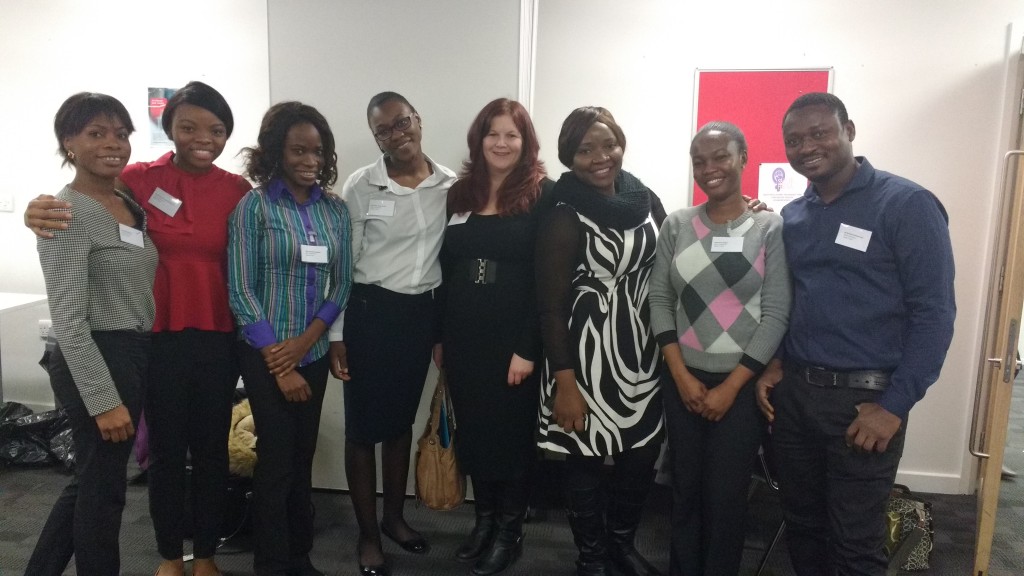
![By D Sharon Pruitt [CC BY 2.0 (http://creativecommons.org/licenses/by/2.0)], via Wikimedia Commons](http://hub.salford.ac.uk/salfordpublichealth/wp-content/uploads/sites/72/2016/01/Scared_Child_at_Nighttime-240x300.jpg)
